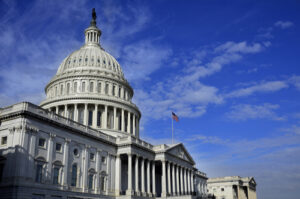
The U.S. House Foreign Affairs Committee on Dec. 13 voted 35-8 to approve a bipartisan bill cosponsored by U.S. Rep. Tom Cole (R-OK) that would authorize the U.S. president to take certain actions to assist foreign trading partners affected by economic coercion and to penalize foreign adversaries.
“I look forward to continuing to work with my colleagues to get this important legislation across the House floor,” Rep. Cole said following the passage of the Countering Economic Coercion Act of 2023, H.R. 1135.
Specifically, H.R. 1135 would authorize the president (upon a determination that a foreign trading partner is subject to economic coercion) to exercise specified authorities to support or assist the foreign trading partner. These authorities include, among others, decreasing duties or modifying tariff-rate quotas on imports from the foreign trading partner, requesting appropriations for foreign aid, and expediting export licensing decisions and regulatory processes, according to the congressional record bill summary.
Further, the bill would authorize the president to exercise specified authorities to penalize a foreign adversary engaged in economic coercion, the summary says, and would include authorities to increase duties and modify tariff-rate quotas.
“Aggression from Communist China comes in various forms, including using economic retaliation against other countries in an attempt to pressure or extort them to adopt or change policies or to exact retribution in response to sovereign decisions Beijing does not like,” said Rep. Cole. “The United States cannot stand idly by and allow this nation that goes against the rules-based system to bully other nations by targeted economic coercion tactics.”
“This can help provide an alternate path to acquiescence to China’s pressure tactics,” the congressman added.
Rep. Cole on Feb. 21 signed on to H.R. 1135 as the lead original cosponsor alongside bill sponsor U.S. Rep. Gregory Meeks (D-NY). The measure is also under consideration by three other committees: the U.S. House Ways and Means; Financial Services; and Rules committees.



